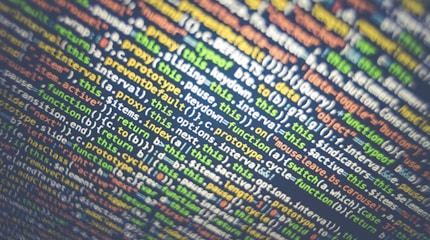🕸️ What is Web Scraping and Why It Matters in Today's Digital World
In an era where data is the ruler, the method of collecting and processing information in a cost-effective manner can make or break researchers, developers, and businesses. Web scraping — a method that has become essential in today's digital age — is probably the most convenient tool to accomplish it.

🔍 What is Web Scraping?
Web scraping is automated web extraction. Instead of manually copying and pasting from a page, web scraping uses bots or scripts to load web pages, parse HTML content, and extract desired data into CSV, JSON, or databases.
It is most typically done with the following:
- Python + BeautifulSoup or Scrapy
- Selenium for dynamic content
- Node.js with Puppeteer or Cheerio
No matter listings for products, articles, shares of stock, or social media updates — if it's anywhere on the web for the world to see, it can likely be scrapped (legally and ethically, of course).
🌍 Why is Web Scraping Important in Today's World?
In the modern era of the internet, data is the buzzword. Web scraping lets people and companies stay ahead by scraping unstructured web data and giving it sense. Some of the strongest reasons web scraping is as popular as it is:
1. 📊 Data-Driven Decision Making
Businesses base strategic choices on data. Web scraping allows them to retrieve up-to-date data on markets, consumer sentiments, and trends within industries.
Example: E-commerce business companies scrape competitors' sites to monitor prices and update their pricing strategies dynamically.
2. 📈 Market & Financial Analysis
Scraping is being used by analysts and investors to gain the following:
- Stock market data
- Economic data
- News headlines
- Revenues of companies
Example: A financial apps application web scrapes news articles and financial data to give users current stock analysis.
3.💬 Social Media and Sentiment Analysis
Web scraping helps one track what is being talked about on the web by web scraping Twitter, Reddit, forum, and blog posts. It comes in handy when one does brand management, politics, and trend analysis.
Example: A brand web scrapes tweets and comments from Reddit for consumer sentiment and potential PR crises.
4. 🏢 Business Intelligence & Competitive Research
Companies employ scraping to track:
- Competitor offerings
- New product launches
- job advertisements
Example: A SaaS company web scrapes rivals' websites to find out about new features they're launching.
5. 📚 Academic and Research Purposes
Universities and researchers web scrape to study:
- Job trends
- Public opinions
- Scientific papers
- Social behaviours
Example: An academic research facility web scrapes job ads to study how demand for AI skills is evolving by industry.
6. 🤖 Automation & Efficiency
Manual data entry is time-consuming, error-ridden, and wasteful. Web scraping automates repetitive tasks, saves time and money.
Example: A real estate analyst webscrapes listings every day to refresh a centralized database of property prices and availability.
⚖️ Ethical and Legal Challenges
Even though so powerful, web scraping must be done responsibly:
- Respect robots.txt directives.
- Don't overload servers.
- Don't break the site's terms of service.
- Never scrape personal or private data without authorization.
There are certain websites that provide official APIs to retrieve the data, and it's always the better option when available.
🧠 Final Thoughts
Web scraping is no longer the sole domain of geeks — it's a requirement in an era where data is the new oil. As a marketer, developer, researcher, or entrepreneur, being capable of scraping and analyzing web data gives you a valuable edge in today's competitive environment.
Assuming that it's utilized ethically, web scraping opens the doors to infinite possibilities of automation, analysis, and innovation.